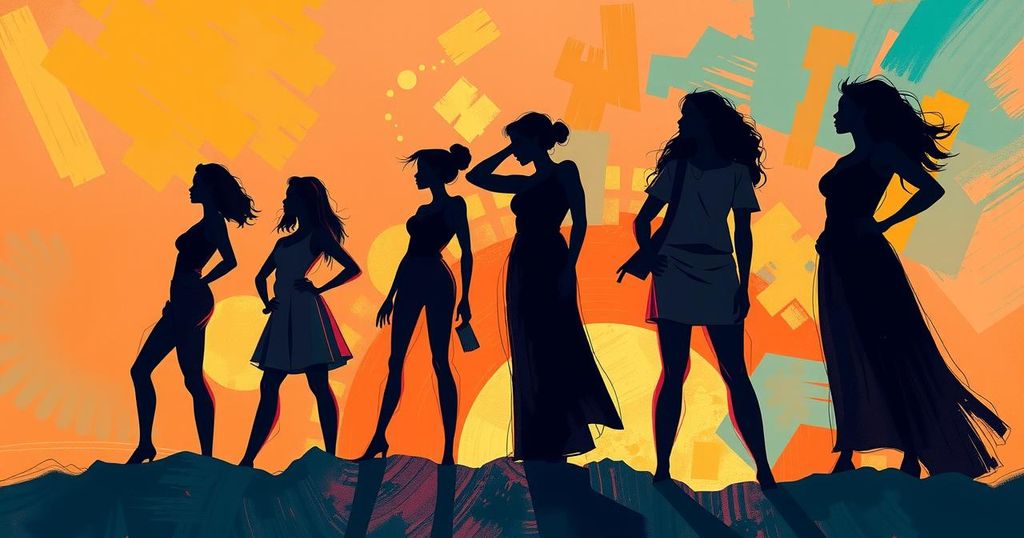Women in Iran face escalating challenges amid a severe economic crisis exacerbated by corruption and sanctions. The current situation disproportionately affects women, particularly in marginalized communities such as the Baloch minority. Advocates note that, despite a rise in female political representation, actual improvements for women remain negligible. However, movements demanding rights and autonomy are gradually emerging, indicating a shift in societal attitudes.
Iran is currently grappling with severe economic challenges stemming from corruption, mismanagement, and international sanctions. Since the restoration of the U.S. “maximum pressure” campaign under President Donald Trump, Iran’s oil exports have been significantly impacted. Narges, a 36-year-old artist from Sistan and Baluchestan, a resource-rich yet impoverished province, illustrates this plight by stating, “We can clearly feel that we are getting poorer from month to month.”
Women in Iran, particularly belonging to the Baloch Sunni minority, are disproportionately affected by the ongoing economic crisis, which has exacerbated discrimination and poverty. Narges shared that during resource shortages, women often prioritize their family’s needs above their own. As the Iranian currency has drastically depreciated and inflation has surged to 31%, it is reported that over 30% of the population cannot secure basic necessities. Union activist Simin Yaqoubian remarked on the acute existential crisis faced by working women, especially single mothers under these dire circumstances.
Despite the increasing representation of women in the political sphere, the actual improvements in conditions for women remain disappointing. Yaqoubian raises pertinent questions about the effectiveness of government reforms regarding women’s rights, as systemic exploitation continues, especially in the service sector where women endure longer hours for lesser pay. The female labor force participation remains critically low at 14.38%, significantly trailing behind that of neighboring countries.
As economic pressures mount, women are frequently the first to be laid off; for instance, Maryam, a political scientist and thalassemia patient, was dismissed from her job due to her health condition. The lack of flexible employment options continues to harm women’s socioeconomic status as they navigate unprecedented economic pressures. Many women, now dependent on falling family support, endure mounting financial burdens even as they strive to contribute through volunteering.
State oppression against civil society and women’s rights activists persists. Marzieh Mohebi, a lawyer and founder of the Sora Women Lawyers Association, had to flee Iran after government scrutiny forced the dissolution of her organization. She expressed pride in her contributions that provided legal support to women, underscoring her belief that their efforts will yield long-term positive outcomes despite challenges.
The aftermath of the 2022 death of Jina Mahsa Amini, which ignited an outcry against enforced hijab laws, has instigated change. Young women increasingly assert their autonomy by defying dress codes, fueling the “Women, Life, Freedom” movement. Narges observed a shift in mentality among families in Baluchestan, indicating a growing allowance for daughters to make personal choices about their attire. This movement is gradually transforming societal attitudes toward women.
The plight of women in Iran illustrates the intersection of economic hardship and gender discrimination exacerbated by political unrest. The ongoing economic crisis severely impacts women’s rights and their role in society, as they often bear the brunt of financial struggles. Nonetheless, movements like “Women, Life, Freedom” signify a growing demand for change, where women are increasingly asserting their rights and striving for autonomy amidst oppressive circumstances.
Original Source: www.dw.com






